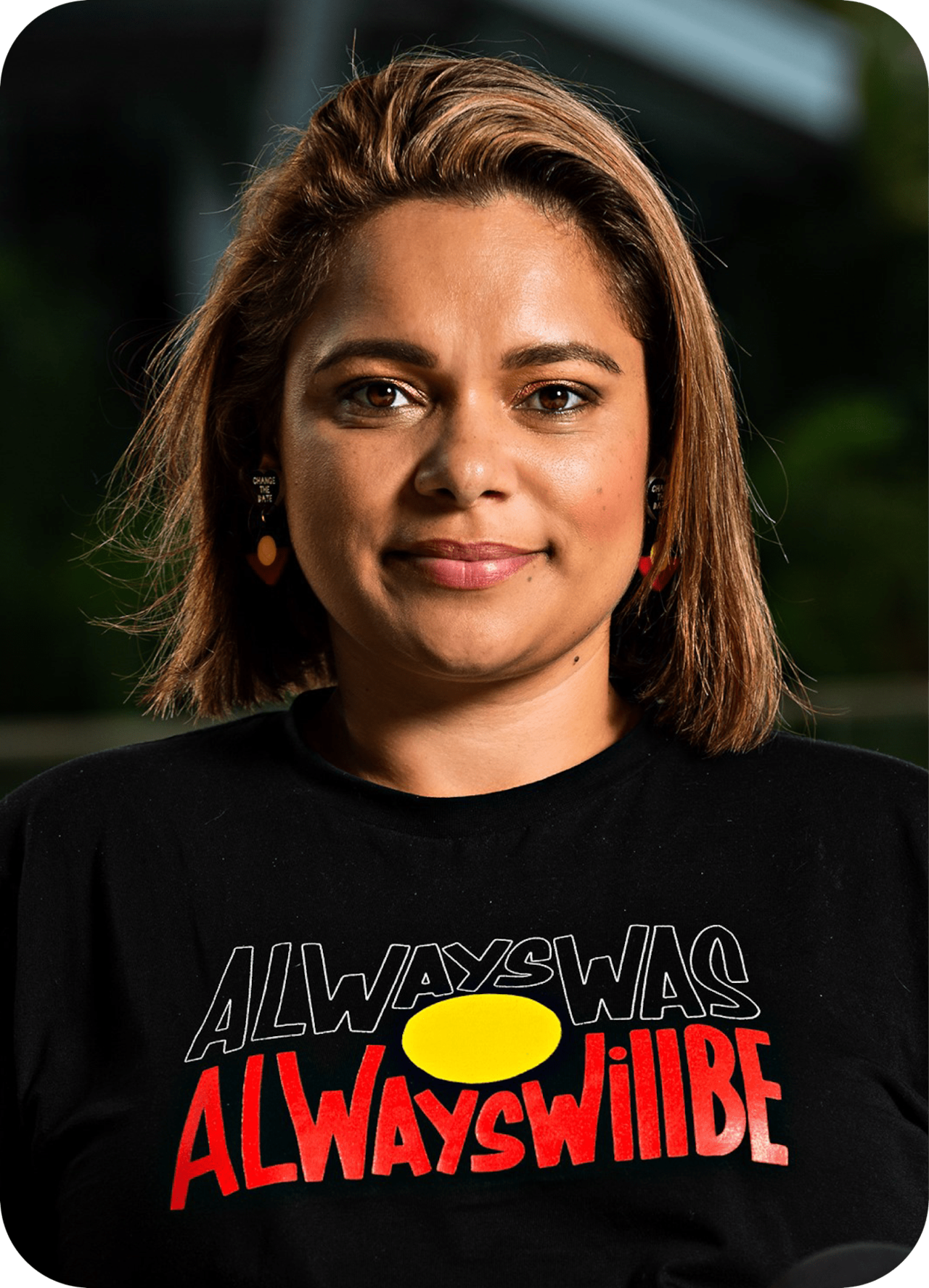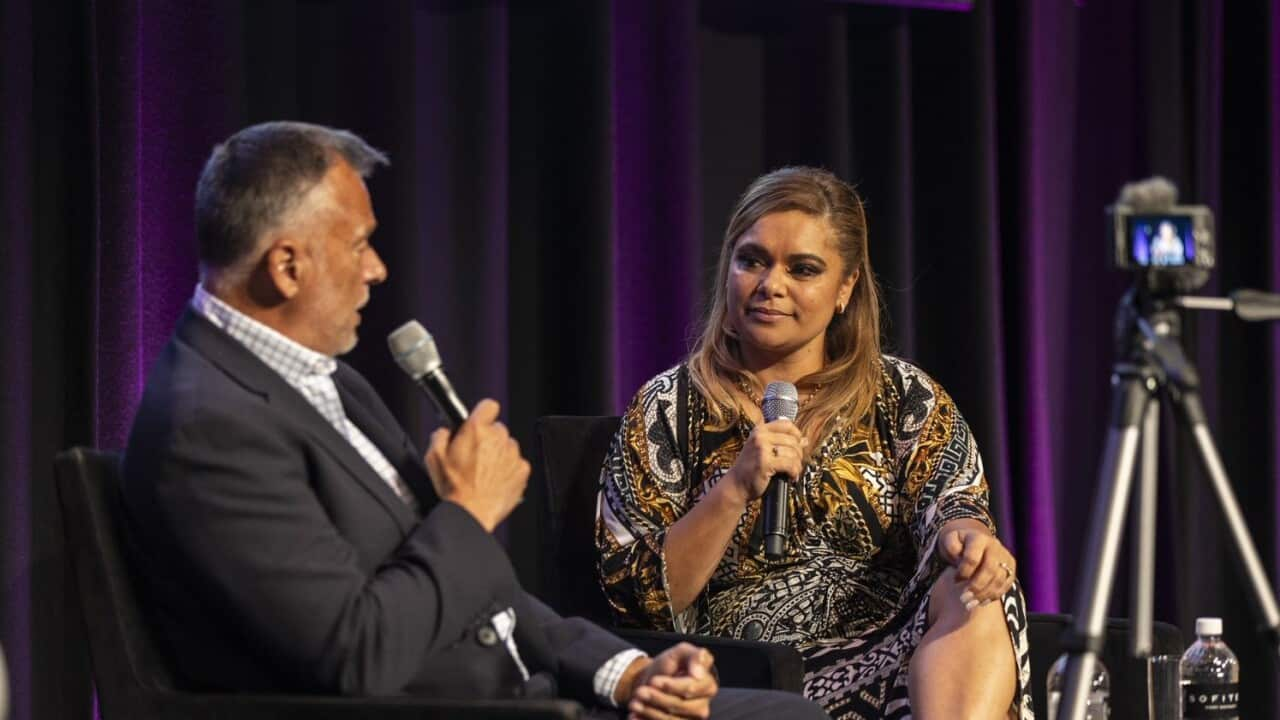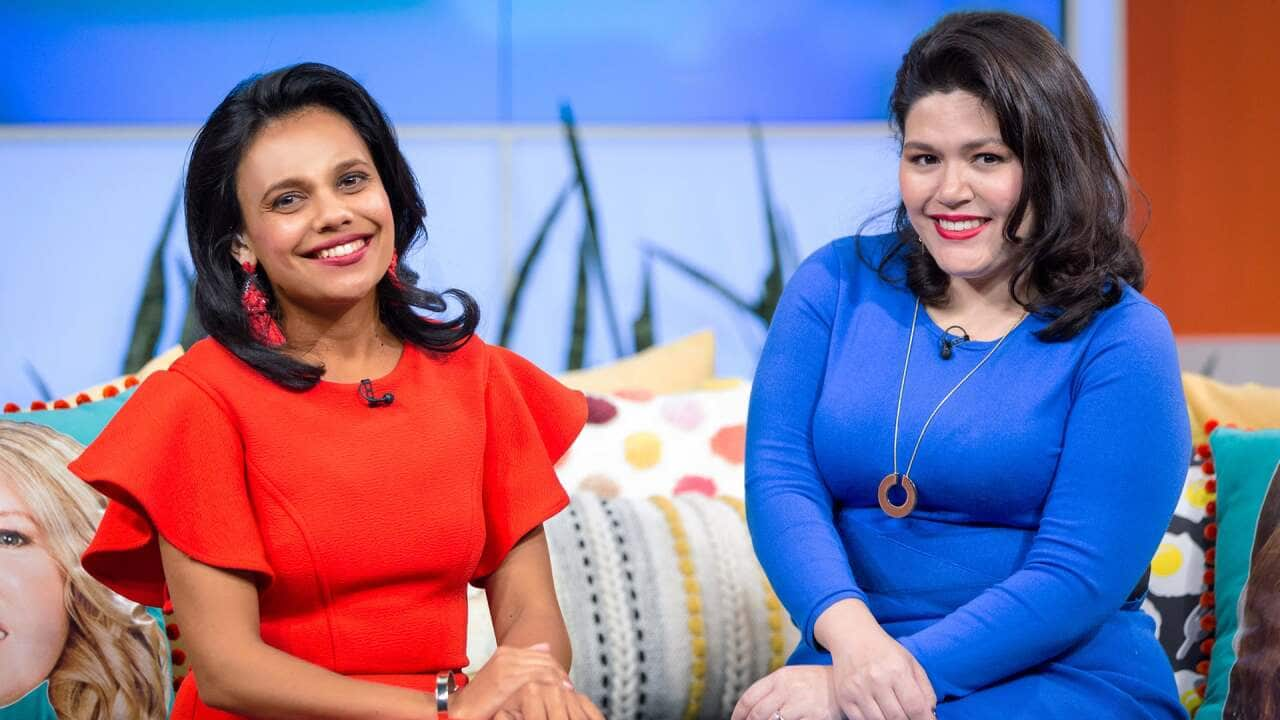Mundanara Bayles is a force to be reckoned with, but it should come as no surprise.
The Wonnarua, Bundjalung, Birri-Gubba and Gungalu woman is from a staunch family of activists, creatives and storytellers.
Her Dad, the late Tiga Bayles and grandmother, Maureen Watson, were pioneers of Blak media, starting Radio Redfern back in the 1980s.
In the decades that followed, Tiga would establish himself as “” founding the National Indigenous Radio Service. He would also serve as CEO at Brisbane Indigenous Media Association (BIMA) for 20 years. BIMA was founded by his late uncle, Uncle Ross Watson, and is the home of 98.9FM.

Tiga Bayles, a Birri-Gubba and Gungalu man, founded Radio Redfern alongside his mother, Maureen Watson. Credit: Supplied
Her podcast has just joined iHeart Radio's podcast network — the first Indigenous podcast to be signed. But, she admits, she didn't think radio was for her.
“I actually hate the sound of my own voice, believe it or not!” she laughs.
Reflecting on the legacy of her father, she says it was being “immersed in the environment as kids” that made it feel right to start her own podcast.
As well as a history-making host, Mundanara is the co-founder and Chief Executive Officer of BlackCard, a cultural capability training organisation.
The organisation celebrated its 10 year anniversary during NAIDOC Week this year, with Mundanara interviewing acclaimed Wiradjuri journalist, Stan Grant, on stage at an event to mark the occasion.
As she gets on the phone with me for our chat, she’s just wrapped up delivering a course for Football Australia's board and is en route to the airport.
The day before she was announced as a finalist for the Supply Nation Indigenous Business Woman of the year.
But it wasn't always this way. Mundanara's story of success is one of joy, strength, love and grief.
Finding her way

Mundanara hopes the partnership with iHeart will amplify Blak stories and voices. Credit: Supplied
“I just finished year 12 and had the world at my feet,” she said.
“That moment really changed my whole life. That grief really struck me to my core.”
Mundanara said she started to go down the wrong path when Tiga stepped in.
“Dad said, ‘why don’t you come down to the radio station?’".
“He said, ‘the skills that you’re going to learn in this industry will take you into any workplace in any industry and will probably take you around the world’.”
Mundanara worked at the radio station for seven years listening to her father in meetings and learning his way of connecting with people.
“Every time I heard him speak he moved people,” she says.
She witnessed firsthand just how far sharing Blak stories and platforming Blak voices could take someone and notes his inimitable ability to connect with local mob in Redfern as a Dawson River Murri, and then on an international level as the Vice President of the World Indigenous Media Association, travelling to Montreal each year.
“My Dad’s ability to communicate across all these cultural barriers… I don’t think we’ll ever see, or hear another Tiga Bayles,” she said. “He was one of a kind.”

The legendary Tiga Bayles in the 98.9FM studio in the early days Source: Supplied
“If we’re not telling our stories to help fill that gap in terms of lack of education and lack of awareness, or even the fact that Australia and Australians are still in denial of this country’s history,” she says. “We need to tell these stories."
As well as following the guidance and example of Tiga, Mundanara draws strength from those who came before who didn’t get the chance to speak up. Her grandmother was part of the Stolen Generation.
“My Nan never got to tell her story,” she said. “Our Old People, their fight, their struggle and their challenges… we’ve got to pick up where they left off.”
With her passion for amplifying Blak voices, Mundanara hopes the partnership with iHeart, and her story, will inspire others to share their own stories and experiences.
“I want our mob to feel comfortable in telling their stories,” she said.
“I want our mob to see the beauty and to feel proud of belonging to the oldest living culture in world history. Having a podcast to help share our story gives mainstream Australia an insight into our lives, into our experiences, into our challenges.”
“I love the fact that we’re now popping up in spaces that you didn’t see us before. Like the first on iHeart.”
We’re here, we’re not going anywhere, and there are going to be many more First Nations podcasters on many more platforms.
From her work in cultural capability training at BlackCard to amplifying Blak voices on Black Magic Woman, Mundanara calls her work ‘self-determination in action’.
“What’s important to me is that the next generation can see it’s doable,” she said.
Reflecting on her Dad's legacy and the lessons he instilled in her and her sisters, I ask if she thinks he'd be proud of how far she's come.
“I always think about him on the hardest days, the most challenging days. I know he’s proud and I always channel his energy when I feel a bit uncertain."
"Our old people are always there, you’ve just got to speak out to them.”
And her own legacy?
“I’ve never really thought about it,” Mundanara said.
“I want our people to feel celebrated in our own country. I want to create a society that really celebrates our culture, our history. I want my children to grow up and be proud of who they are and where they come from. And that’s really hard.
“I just hope with every BlackCard course and with every [podcast] episode that I’m able to change peoples’ perspectives and to really start to see us for who we are - the first peoples of this country, the oldest living culture in world history.”














